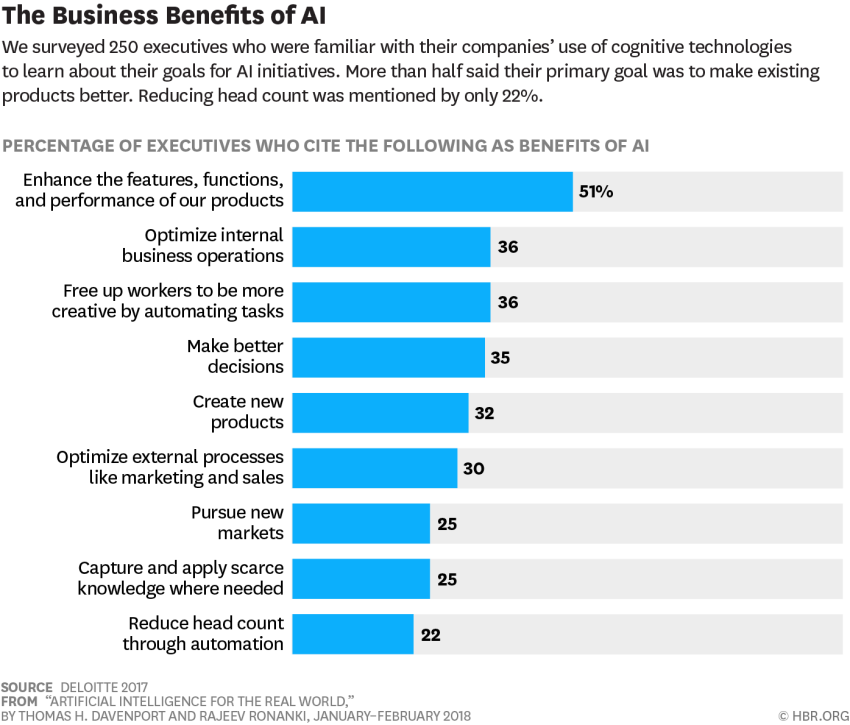It doesn’t have to be ‘Rocket Science’
Driven partly by hype and partly by fear, the claims for Machine Learning and Artificial Intelligence in whatever guise capture the attention. Especially in scientific and healthcare applications, the ability of machines to provide cognitive insights that would not be immediately apparent to the human eye lends them a ‘wow’ factor that has us all wondering ‘what next?’. There is no denying that research in these areas is valuable, and holds a great deal of promise to improve life.
That said, organisations dabbling with AI are using the technology to do much less ambitious jobs, where the results can be far more promising, leading to improvements in efficiency and customer service that continue the tradition of using technology to drive business efficiency.
The Business Benefits of AI
In their 2017 survey of cognitive technologies, Deloitte picked out a number of areas where the primary goal of using cognitive technology is more about making products and services better, rather than specifically reducing headcount.

It’s more for these reasons that AI and Machine Learning are expected to revolutionise that ways we do business, such that 75% of the executives whom Deloitte surveyed believe that AI will ‘substantially transform’ their businesses within the next three years.
Getting started means taking a long hard look at your business processes
Detecting patterns of cancer cells is an example of cognitive insight provided by the computer. Many businesses will have their ‘equivalent applications’ of those areas where analysis of larger volumes of data can drive the type of insight they would not have achieved without it. Analysing customer buying patterns or assessing financial transactions for fraud spring to mind.
In thinking about where AI could help, it’s useful to think about your business capabilities, and where you have problems still, rather than thinking about technology per se. Broadly speaking, AI will help in three areas, by
- Automating business processes even more than they have been to date, or automating processes that have not been automated to the extent that such advanced capability brings about. Intelligent Automation will typically help back- office and admin functions, going further than previously because the system can take more data points into account in the way that a human operative might.
- Providing Cognitive Insight – where apps are being used to predict customer behaviour, personalise interactions with greater precision or provide predictive analytics related to products in the field
- Engaging people in ‘conversations’, both internally and externally, to undertake tasks that are time-consuming and do not involve great brain power, typically using automated software robots that interact in a dialogue with the user (chatbots). The purpose is such Cognitive Engagement to minimise workload on mundane transactions that the machine can cope with, leaving employees to handle the more difficult cases.
As companies develop their knowledge of the technology, elements of all three can combine to drive greater benefit. Early successes are likely to be fairly modest, concentrating on proving that the technology ‘works’ in that it can achieve business objectives. When it deals with information intensive applications it is likely to be more valuable than not.
In summary
In being targeted at less headline-grabbing applications, cognitive systems perform tasks rather than whole job functions, and it is here that their impact in business is likely to be greatest, pushing a new leap forward in productivity.
If you wish to share your thoughts on this article, you are welcome to comment below, or to contact the author, email [email protected].

